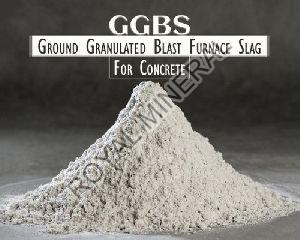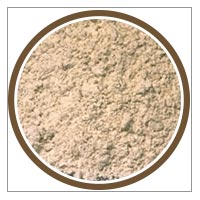
Ground Granulated Blast Furnace Slag
Get Price Quote
Ground-granulated blast-furnace slag (GGBFS or GGBS) is obtained by quenching molten iron slag (a by-product of iron and steel-making) from a blast furnace in water or steam, to produce a glassy, granular product that is then dried and ground into a fine powder.The main components of blast furnace slag are CaO, SiO2, Al2O3 and MgO.GGBFS is used to make durable concrete structures in combination with ordinary portland cement and/or other pozzolanic materials.Use of GGBFS significantly reduces the risk of damages caused by alkali–silica reaction (ASR), provides higher resistance to chloride ingress — reducing the risk of reinforcement corrosion — and provides higher resistance to attacks by sulfate and other chemicals.

Ground Granulated Blast Furnace Slag
Get Price Quote
Best Deals from Granulated Slag

granulated blast furnace slag
Get Price Quote
Granulated Blast Furnace Slag or GBFS is formed when Blast Furnace Slag or BFS is successively at a fast rate quenched from the furnace rather than left for cooling. It has a density of about 60% to 70% that of natural sand. This material has a much increased resistance to sulfate attack. This eventually leads to better performance in countering acids of any type. In GBFS, no type of reaction related to alkali and silica occurs. Also the material provides a huge saving in connection to carbon dioxide emission which is an extra boon. What constitutes GBFS are its properties that consist of durability, appearance, higher ultimate strength than concrete which is made up of Portland cement and high sustainability level of the product made out of this material. Also the pozzolanic properties tend to turn it into a solid block. Granulated Blast Furnace Slag is an essential material for grit-blasting procedures. In field like road construction and cement manufacturing, GBFS has typical usage and is widely renowned for it.

Ground Granulated Blast Furnace Slag
2,850 Per Metric Ton
100 Metric Ton (MOQ)

granulated blast furnace slag
Get Price Quote
Granulated Blast Furnace Slag or GBFS is formed when Blast Furnace Slag or BFS is successively at a fast rate quenched from the furnace rather than left for cooling. It has a density of about 60% to 70% that of natural sand. This material has a much increased resistance to sulfate attack. This eventually leads to better performance in countering acids of any type. In GBFS, no type of reaction related to alkali and silica occurs. Also the material provides a huge saving in connection to carbon dioxide emission which is an extra boon. What constitutes GBFS are its properties that consist of durability, appearance, higher ultimate strength than concrete which is made up of Portland cement and high sustainability level of the product made out of this material. Also the pozzolanic properties tend to turn it into a solid block. Granulated Blast Furnace Slag is an essential material for grit-blasting procedures. In field like road construction and cement manufacturing, GBFS has typical usage and is widely renowned for it. GBFS can be used as construction sand and for stabilizing soil pavements. It is quiet helpful in civil engineering applications.

granulated blast furnace slag
Get Price Quote
Granulated Blast Furnace Slag or GBFS is formed when Blast Furnace Slag or BFS is successively at a fast rate quenched from the furnace rather than left for cooling. It has a density of about 60% to 70% that of natural sand. This material has a much increased resistance to sulfate attack. This eventually leads to better performance in countering acids of any type. In GBFS, no type of reaction related to alkali and silica occurs. Also the material provides a huge saving in connection to carbon dioxide emission which is an extra boon. What constitutes GBFS are its properties that consist of durability, appearance, higher ultimate strength than concrete which is made up of Portland cement and high sustainability level of the product made out of this material.

granulated blast furnace slag
Get Price Quote
Granulated Blast Furnace Slag or GBFS is formed when Blast Furnace Slag or BFS is successively at a fast rate quenched from the furnace rather than left for cooling. It has a density of about 60% to 70% that of natural sand. This material has a much increased resistance to sulfate attack. This eventually leads to better performance in countering acids of any type. In GBFS, no type of reaction related to alkali and silica occurs. Also the material provides a huge saving in connection to carbon dioxide emission which is an extra boon. What constitutes GBFS are its properties that consist of durability, appearance, higher ultimate strength than concrete which is made up of Portland cement and high sustainability level of the product made out of this material.

Ground Granulated Blast Furnace Slag
Get Price Quote
Dry Fly Ash Classifier

granulated blast furnace slag
Get Price Quote
granulated blast furnace slag

ground granulated blast furnace slag granules
Get Price Quote
ground granulated blast furnace slag granules